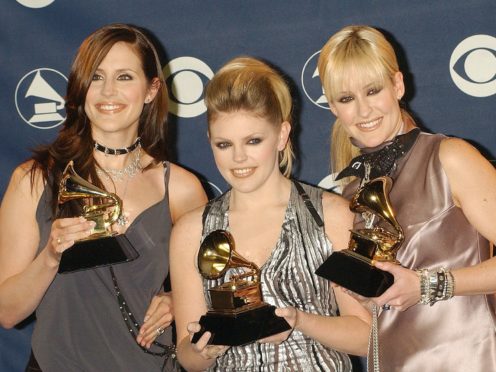The Dixie Chicks have changed their name to The Chicks.
The famous US country group – currently Natalie Maines, Emily Strayer and Martie Maguire – revealed the rebrand as they released their new song March March.
The word Dixie often refers to the southern states of the US that seceded around 1860 to form the new Confederate States of America.
“If your voice held no power, they wouldn’t try to silence you.” – unknown#MARCHMARCH pic.twitter.com/n4hJTaYSri
— The Chicks (@thechicks) June 25, 2020
A statement from the band said: “A sincere and heartfelt thank you goes out to The Chicks of NZ for their gracious gesture in allowing us to share their name. We are honored to co-exist together in the world with these exceptionally talented sisters. Chicks Rock!”
The music video for March March appears to feature footage from Black Lives Matter and LGBT protests, images of Greta Thunberg and Malala Yousafzai, and lyrics addressing power, silence and voting.
Infamously, The Chicks’ career was almost derailed when they publicly denounced former US president George W Bush before the 2003 invasion of Iraq.
Maines said they were “ashamed” of Mr Bush, leading to a boycott of their music.
Earlier this month, Grammy-winning country group Lady Antebellum changed their name to Lady A, saying they had reassessed the word’s associations with slavery.
Antebellum means before a war and the term has been widely associated with the pre-Civil War period in the United States when slavery was practised.
